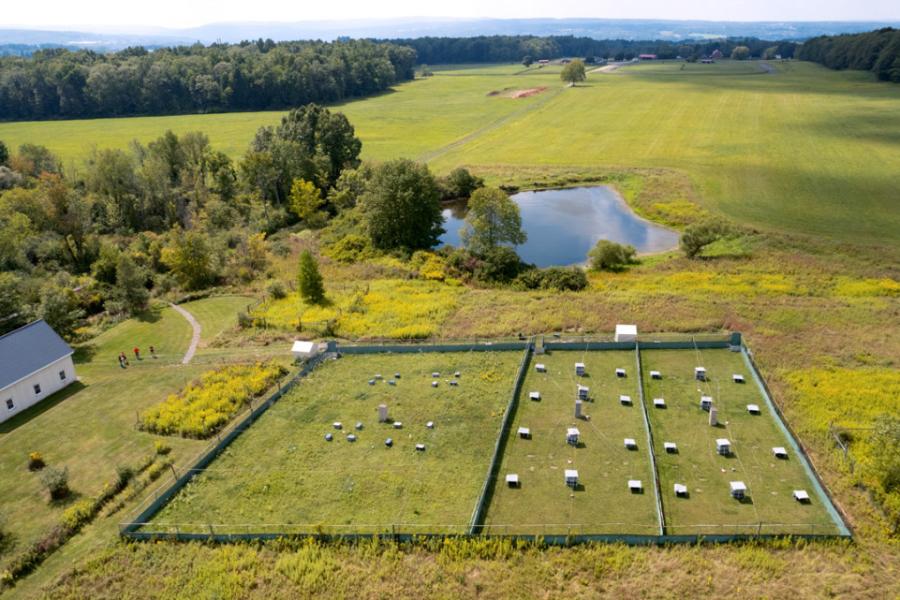
In lab mice rehomed to fields, anxiety is reversed 
When postdoctoral researcher Matthew Zipple releases lab mice into a large, enclosed field just off Cornell’s campus, something remarkable happens.
Read more
 Department Homepage
Department Homepage
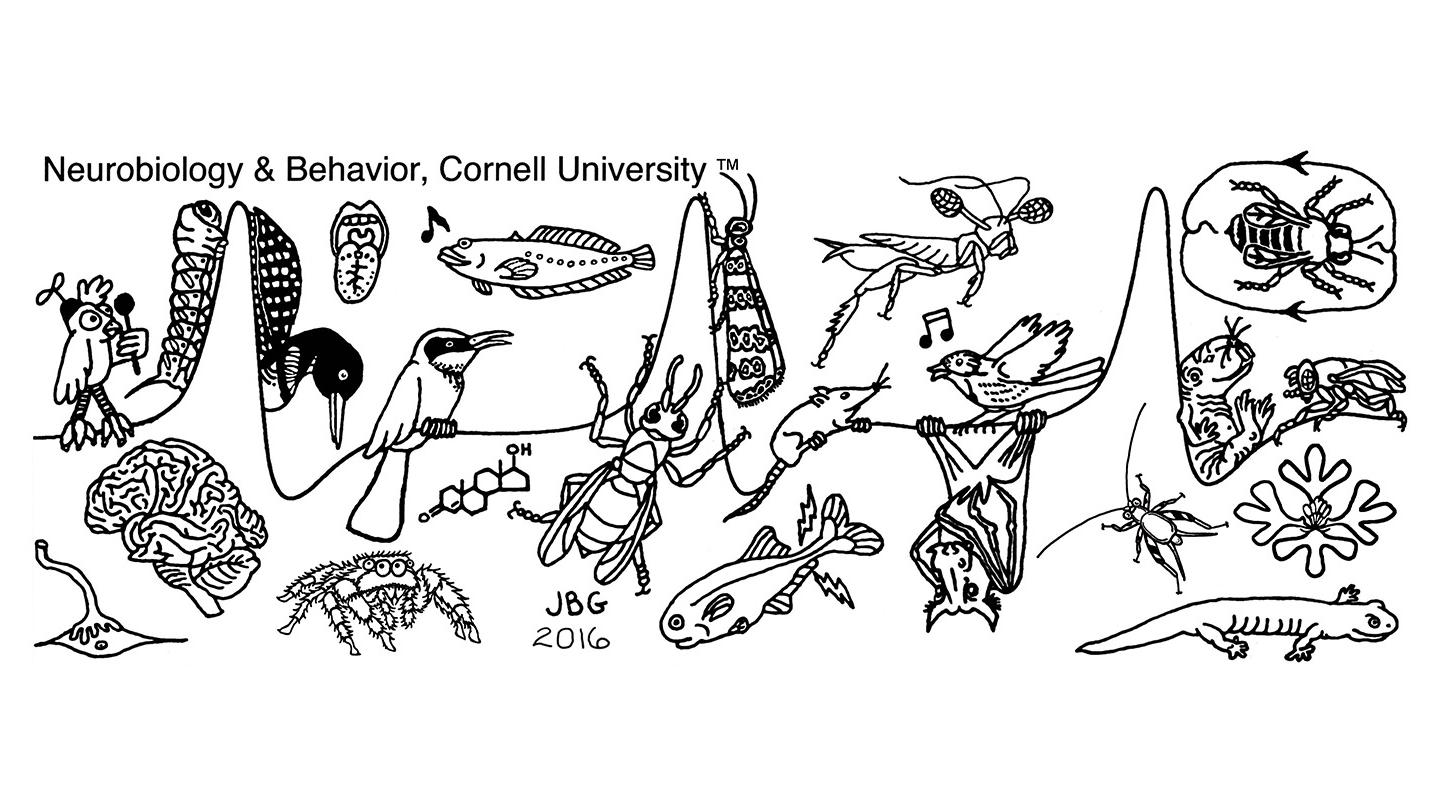
The Department of Neurobiology and Behavior (NBB) was among the first to combine the study of animal behavior with its neural basis. Our faculty and students are dedicated to exploring a wide range of scientific topics, from single neurons and complex circuits to whole organisms and their societies. Central to our mission is the quest to unravel the profound mysteries of how nervous systems generate behavior, including the evolutionary pathways that have shaped brains and behavior over time. We believe these scientific frontiers are not just fascinating but also critical for understanding the intricacies of the brain, the least understood organ that underlies human experience. As a community we adhere to Cornell's Founding Principle of "... any person ... any study".


When postdoctoral researcher Matthew Zipple releases lab mice into a large, enclosed field just off Cornell’s campus, something remarkable happens.
Read more
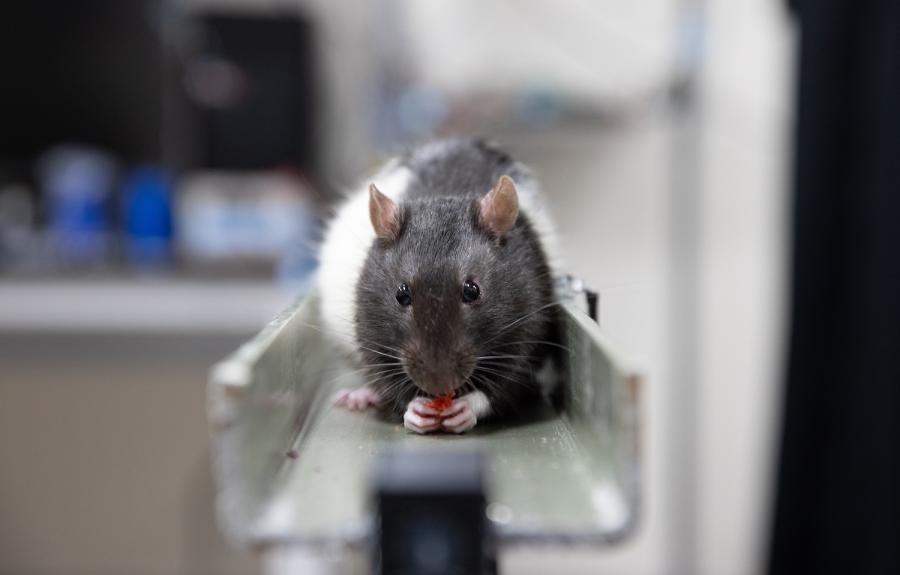
Antonio Fernandez-Ruiz, assistant professor and Nancy and Peter Meinig Family Investigator in the Life Sciences of neurobiology and behavior and Azahara Oliva, assistant professor of neurobiology and behavior found a pattern of ripples in Brain activty during sleep that affects memories. Azahara Ol...
Read more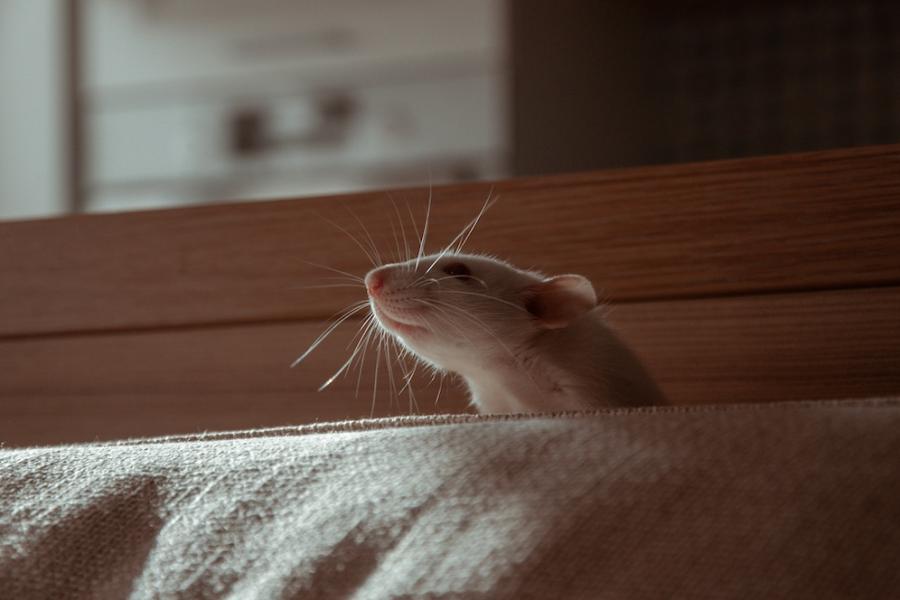

Manipulating mouse brains during sleep improved their ability to remember new experiences that would normally be forgotten – a finding with important implications for treating Alzheimer’s disease.
Read more

Howard Howland, Ph.D. ’68, a neurophysiologist who studied the eyes of humans and animals, died Oct. 26 in Ithaca. He was 92.
Read more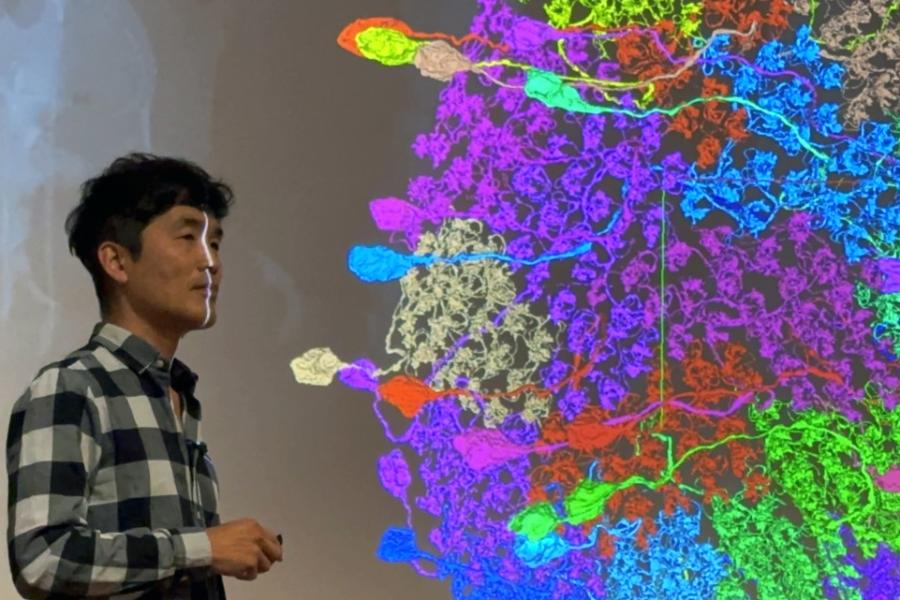

The event was an example of Cornell’s interdisciplinary commitment to advancing the frontiers of neurotechnology.
Read more


Cornell researchers and collaborators have developed a neural implant so small that it can rest on a grain of salt, yet it can wirelessly transmit brain activity data in a living animal for more than a year.
Read more

"The brain rarely works alone to control our behavior or physiology. From the rhythm of our heartbeat to the flutter of ‘butterflies’ in our stomach, it is in constant dialogue with our body," quoted by author Nilay Yapici, Associate Professor and Nancy and Peter Meinig Family Investigator and Fello...
Read more
Azahara Oliva has been named one of the 20 new Science and Engineering Fellows for 2025. Read the entire story in Forbes.
Read more